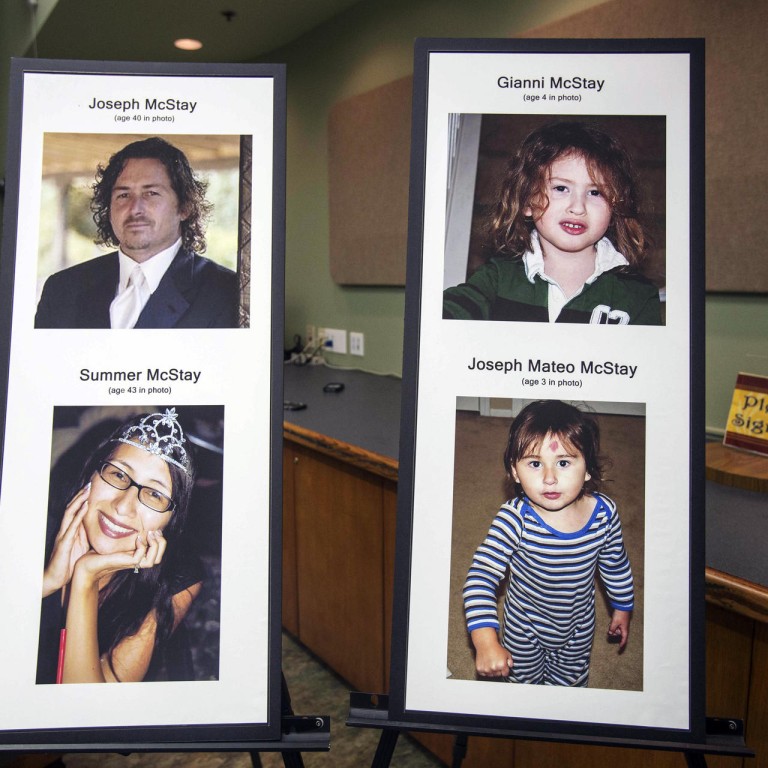
California family missing four years found buried in desert 160km away
One riddle ends with the discovery of remains of California couple and their sons missing since 2010; now police seek clues to their killing
Nearly four years ago, the McStays left their snug home in suburban San Diego county, California, on a chilly February evening. Piling into their Isuzu Trooper, parents Joseph and Summer and young sons Gianni and Joseph left behind two dogs, two bowls of popcorn and, soon, a mystery.
Their car turned up four days later in the car park of a small mall near the US-Mexico border, with a few birthday toys for one of the boys on the back seat. But there was no sign of the McStays.
After 1,374 days and some 160 kilometres to the north, San Bernardino county police uncovered the skeletal remains of the parents and two small bodies believed to be their boys, authorities said on Friday. An off-road motorcyclist had noticed a few scattered bones four days earlier, near what turned out to be a pair of shallow graves on the edge of the desert outside Victorville.
After years of false leads and purported sightings from around the nation and into Mexico, San Bernardino county Sheriff John McMahon put part of the mystery to rest when he announced that the four McStays were homicide victims. But the sheriff said it would take more investigation before detectives would have any hope of saying how or why the family died.
"It's not really the outcome we were looking for," Joseph McStay's brother, Michael, said. "But it gives us courage to know they're together and they're in a better place."
From the time the family disappeared in February 2010, detectives in San Diego county said they were baffled by the case. The 40-year-old husband and his wife, 43, appeared to have no enemies. Joseph McStay appeared to have plenty of work at his business, Earth Inspired Products, which installed water fountains.
The lead investigator in the case, Troy DuGal, said he found no signs of forced entry or a struggle at the home of the McStays, on a cul-de-sac in Fallbrook, a town of 30,000. A surveillance camera from a nearby home indicated the parents and their two boys, three and four years old, had left on Thursday, February 4, 2010, at 7.47pm.
No one reported a trace of them until the following Monday, when security guards at the small shopping centre in San Ysidro found the SUV. They had the car towed, seemingly just another one of the visitors who illegally parked in the lot before taking the pedestrian overcrossing into Mexico.
The Isuzu yielded no significant clues. Investigators wondered if the McStays had simply walked over the border. That theory gained some traction when video from a surveillance camera at the border revealed pictures of a man and woman, each holding the hand of a small boy.
Family members looked at the video. The woman wore clothing that looked like it could be Summer's but the man seemed too tall and slender to be Joseph.
An FBI forensic lab had picked through the family computers and found other possible hints of an impending trip to Mexico. Someone had searched: "What documents do children need for travelling to Mexico?" Another search indicated a possible interest in Spanish lessons.
But others close to the family said the McStays had talked about how the drug wars in Mexico made travel there too dangerous.
"My son didn't walk away," Joseph's father, Patrick McStay, said on Thursday. "They didn't walk into Mexico. They would never do that."
Patrick McStay has long complained that San Diego investigators should have done more. But he also acknowledged his fury had bolstered his spirit: "By being mad, by going after, by trying to find out what happened to my family, trying to get people to listen, that's what keeps me going."
